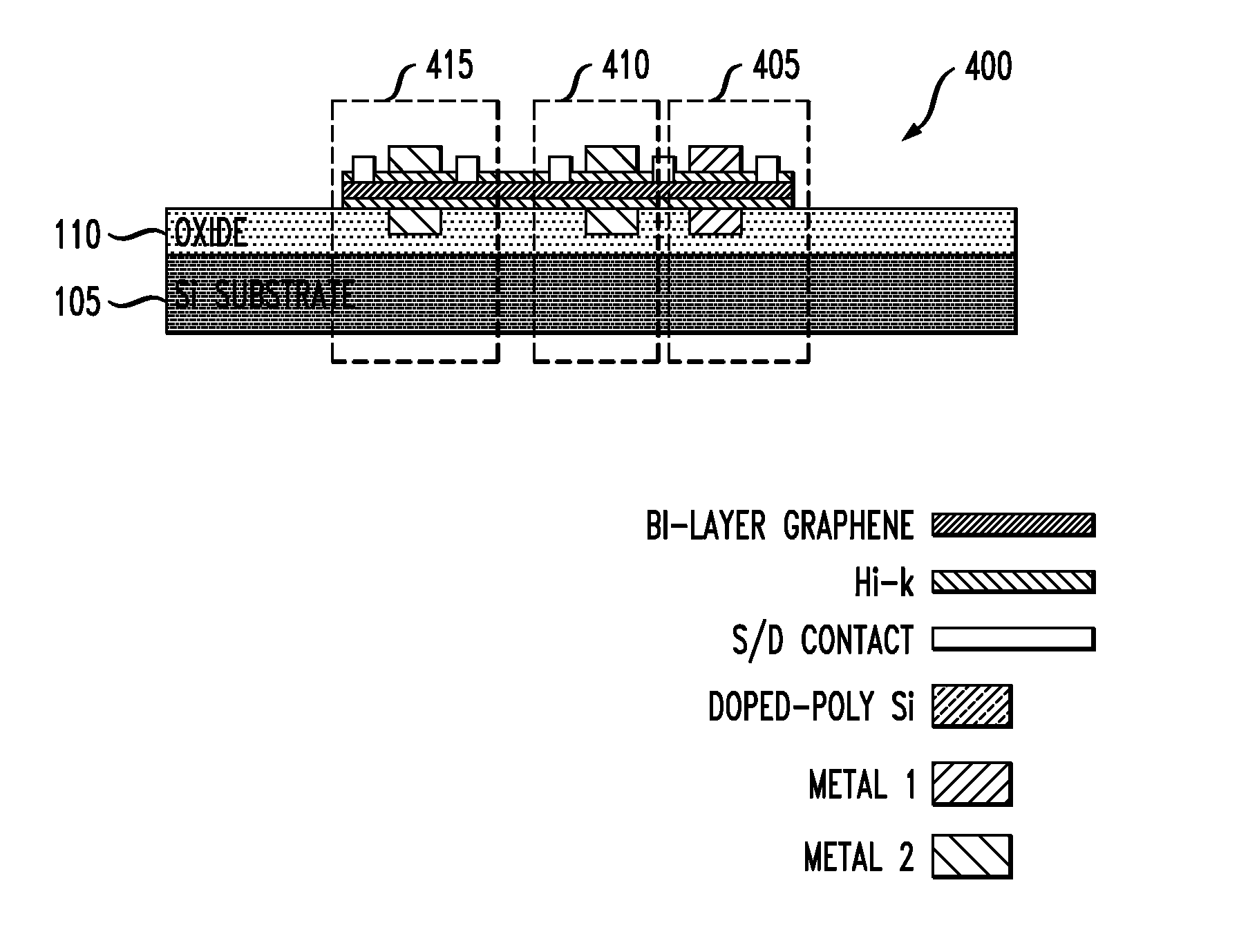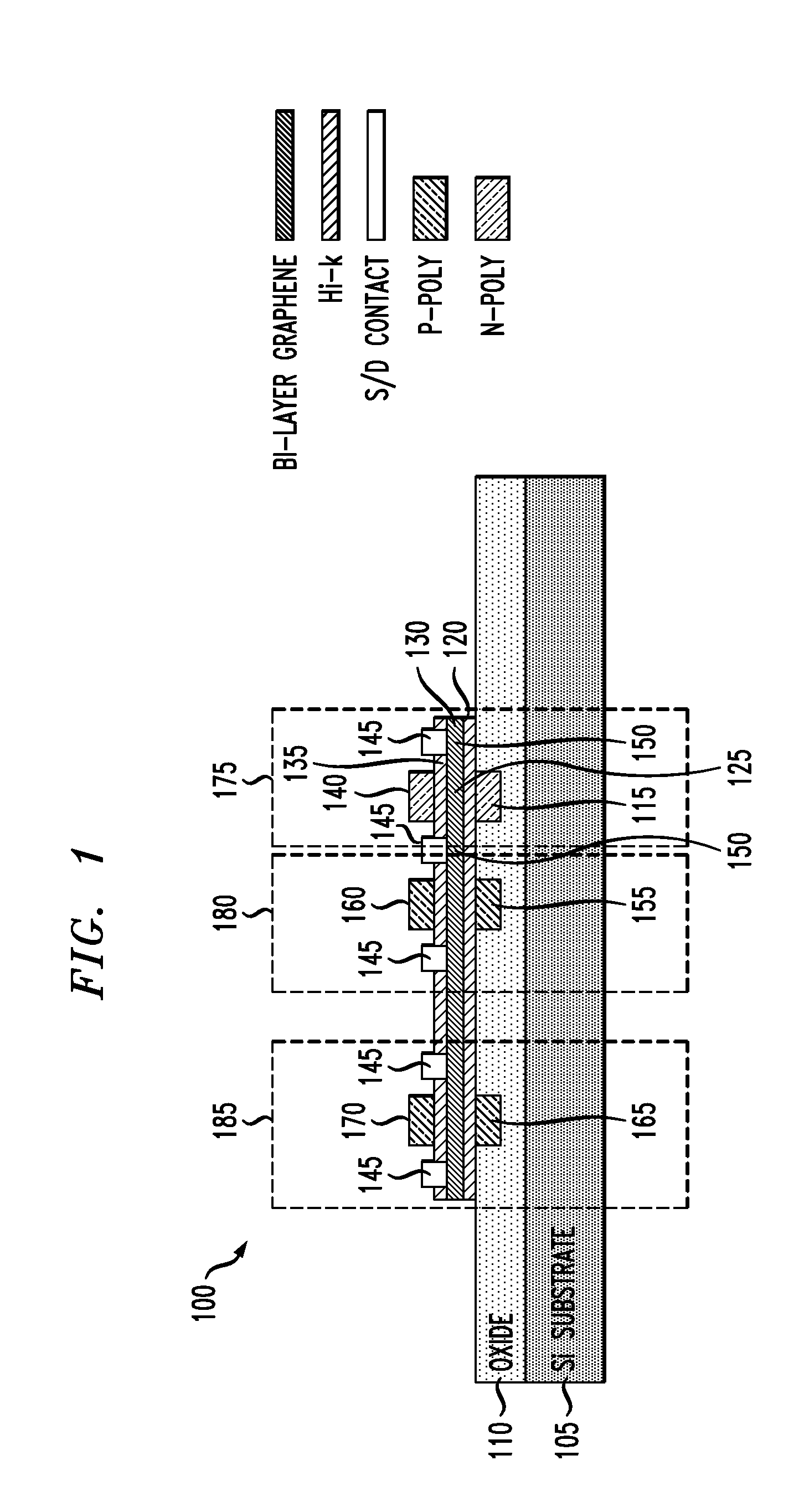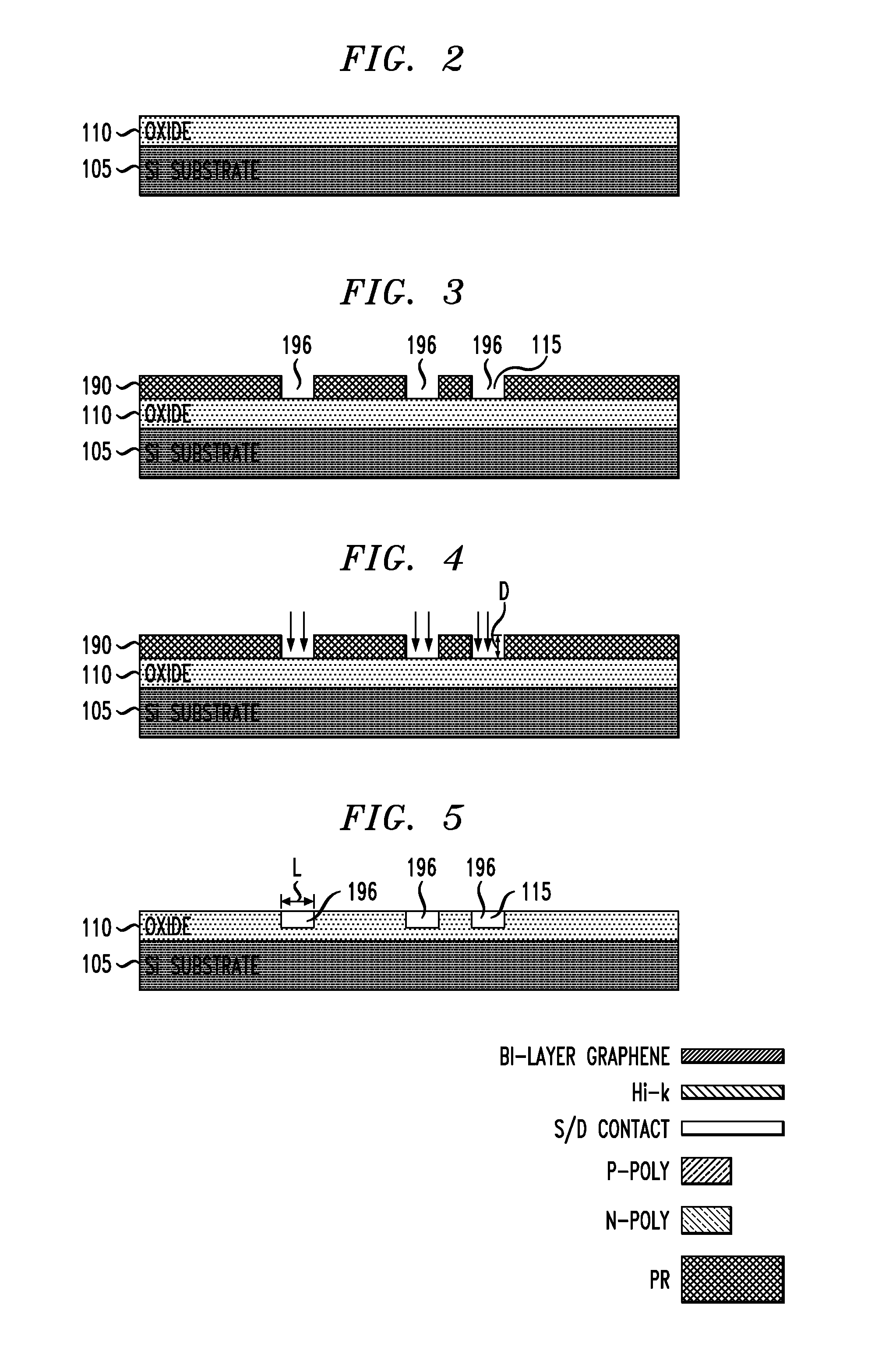Graphene Devices with Local Dual Gates
a graphene device and dual gate technology, applied in the field of local dual gate graphene devices, can solve the problems of poor fet leakage current and impracticality of large-scale complementary metal-oxide-semiconductor (cmos) transistors
- Summary
- Abstract
- Description
- Claims
- Application Information
AI Technical Summary
Benefits of technology
Problems solved by technology
Method used
Image
Examples
Embodiment Construction
[0035]The present invention relates to graphene based electronic device, such as a field-effect transistor (FET) and methods of manufacturing the same. Graphene's bilayer electronic band structure has led to an interest of creating tunable band gap bilayer electronic devices such as a FET. In manufacturing of electronic devices, typically a wafer can hold multiple devices. The electronic device discussed herein includes a patterned top and bottom gates to bias different voltages on different devices on the same wafer to different band gap or threshold voltage (Vt) depending on the device and / or circuit requirement. An advantage of using a patterned bottom gate is the ability to form CMOS logic devices and / or technologies with multiple device Vt offerings, which is common in today's semiconductor industry. For example, low Vt devices for high switching speed and high Vt devices for low power are usually provided on the same wafer.
[0036]Besides the lack of controllability of individua...
PUM
 Login to View More
Login to View More Abstract
Description
Claims
Application Information
 Login to View More
Login to View More - R&D
- Intellectual Property
- Life Sciences
- Materials
- Tech Scout
- Unparalleled Data Quality
- Higher Quality Content
- 60% Fewer Hallucinations
Browse by: Latest US Patents, China's latest patents, Technical Efficacy Thesaurus, Application Domain, Technology Topic, Popular Technical Reports.
© 2025 PatSnap. All rights reserved.Legal|Privacy policy|Modern Slavery Act Transparency Statement|Sitemap|About US| Contact US: help@patsnap.com



